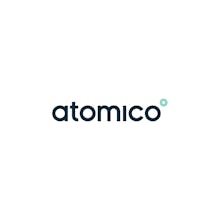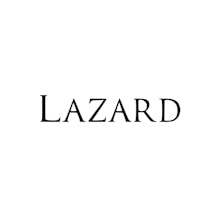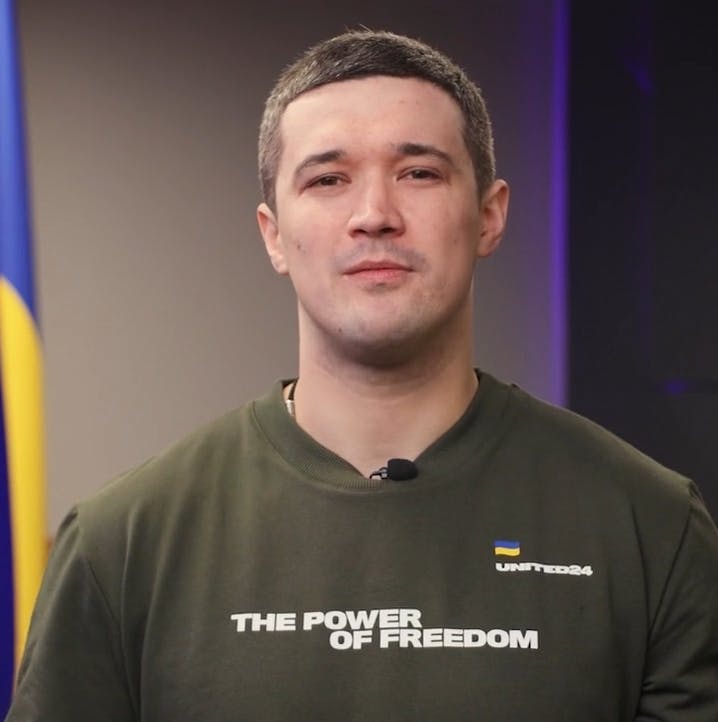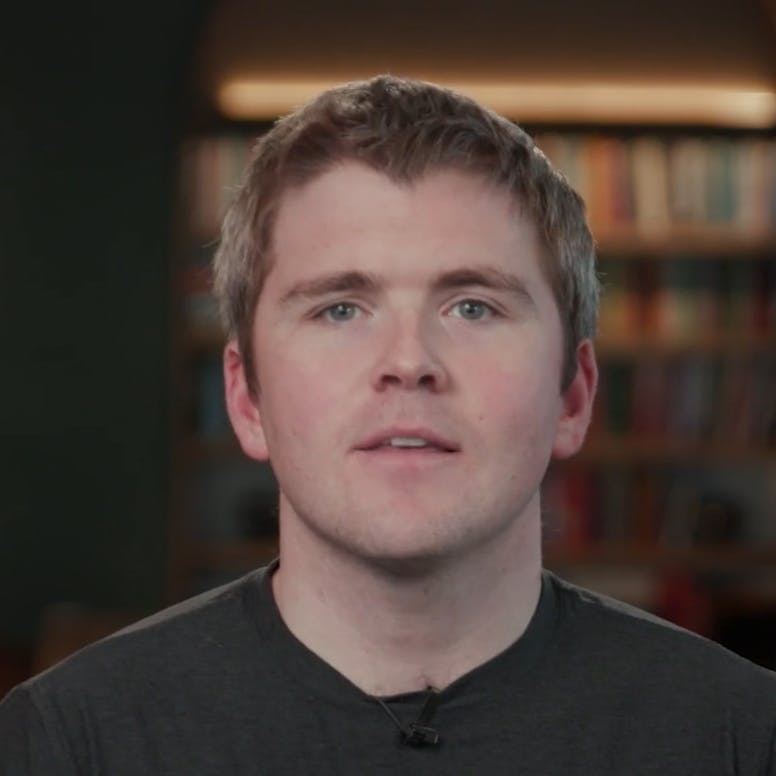By June, a total of $55.5 billion had been invested in European tech, placing the first half of 2022 on par with last year’s record levels for the same period. However, this initial boost was driven by spillover from the previous year’s investment activity, and we’re on track for a 42% decrease for the second half of the year compared to 2021.
We all know that the IPO market is mostly closed. Globally, there have been just three IPOs valued at $1 billion or more, two of which were in Europe, compared to last year’s 86. M&A activity, while one of the only remaining routes to exit for founders, has also dropped off. The compression of the public market has trickled down to the private markets, with investment round sizes now shrinking, after inflating in 2021. Series A valuations have fallen 50%, while Series C valuations are down 60% from their highs at the end of 2021.
For founders facing slower revenue growth and diminishing cash reserves, reticent to raise at a lower valuation, this means doing more with less. Layoffs have been one of the most visible, and difficult, indicators of the economic slowdown, as hundreds of firms made the hard decision to reduce headcount to manage cash burn. The pace of layoffs has increased in the second half of the year and more pain is likely to come in 2023.
Yet, despite the somewhat gloomy headlines, we’ve emerged from the process of writing this report feeling more optimistic about the European tech opportunity. The technology ecosystem as we know it is barely twenty years old and in that time we’ve matured at an incredible rate. Real success for the sector is less about short-term valuations, and much more about talent, innovation and long-term company building. The crucial pieces of this puzzle remain in place. Investors are sitting on record amounts of dry powder to deploy - $84 billion across European venture and growth funds alone, up almost 3x in just the last five years. Europe has 160,000+ start-ups, many still hiring, and a community of 2.6 million start-up employees more experienced, more connected and better equipped than ever. In terms of the underlying strength of our ecosystem, far less has changed than we think.

This year has defied expectations, but it needs to be viewed through a longer lens than the past 24 months. The fundraising numbers we became accustomed to seeing last year were astronomically high, so we can be optimistic that what we are witnessing in 2022 still significantly outweighs where we were just two years ago. As the European ecosystem matures, we’re naturally going to see ebbs and flows, but we shouldn’t discount our overall progress on the basis of macro conditions that are impacting every sector worldwide. So despite the headline data, optimism remains high with close to 8 in 10 survey respondents confident in the future of European technology going into 2023.
Digital transformation is not going away. Tailwinds continue to propel the sector forward, and with the world facing significant challenges, technology must be our solution. New estimates suggest that the EU alone will need to double its number of technology specialists - and create 11 million more roles by 2030 - in order to meet the growing demand for new tech. We’re still very early in Europe’s journey.
That’s not to say there won’t be more hard choices on the horizon. Leaning into the difficult decisions of this period - be that down rounds, layoffs or closing up shop, is crucial. The true strength of European tech is about building a future-facing ecosystem that can withstand economic cycles and come through stronger. Many founders today have only ever experienced bull market conditions. The slowdown is a chance to build more resilient businesses, with the perspective and maturity to endure for the long term.
And there’s evidence the tech community agrees. According to our survey, there is optimism across all groups - founders, operators, VCs, LPs, policymakers - despite the macroeconomic turbulence. 44% of respondents feel more optimistic about European tech now than they were twelve months ago. This rises to 77% when you include those who say they feel the same as a year ago. There is consensus about the future of European tech.
With less froth, and the consolidation that comes from a downturn, Europe has the opportunity to focus resources on technologies that solve meaningful problems and have the greatest chance of success. Investment in purpose-driven technology has actually sped up this year, despite the market turmoil. While total capital invested in tech is up 3.1x on 2018, climate tech investment has increased 6.7x in the same period.
During a downturn, perceptions of opportunity and risk inevitably evolve. But as this report shows, innovation doesn’t stop, and neither does entrepreneurship. While a recession may hit short-term consumer spending and business investment, technology continues to transform the way we live and work.
That’s why our message to founders, governments, and LPs is clear: this is not the time to sit back. Whatever is happening in the markets, the fundamentals of this ecosystem haven’t changed. The opportunity for Europe is greater than ever.

The technology ecosystem as we know it is barely twenty years old and in that time we’ve matured at an incredible rate. Real success for the sector is about talent, innovation and long-term company building. The crucial pieces of this puzzle remain in place, with $44B in European venture capital funds ready to be invested in the right opportunities. In terms of the underlying strength of our ecosystem, far less has changed than we think.

A word from Orrick
If one word summarizes European tech in 2022, it is resilient. Total investment remains on track to reach $85B this year. In the toughest macroeconomic environment since the global financial crisis, this will not fall far behind the 2021’s record-breaking levels.
Responsible Growth Will Drive Innovation
As an economic downturn creates turbulence across global markets, venture capital investors are becoming more cautious and selective. Growth for growth’s sake is no longer enough – companies also must balance efficiency, sustainability and profitability.The Pool of European Investors Is Deeper Than Ever Before
Nearly 3,500 institutions participated in at least one investment in Europe in 2022. Despite some slowdown in investment activity, plenty of investors continue to explore opportunities in European tech.The Market Offers a Wealth of Untapped Potential
The pandemic accelerated tech adoption, but potential still beckons around the continent. A third of retail companies in Europe lack a website and nearly 60% of businesses with at least 10 employees are not in the cloud.Tech Continues To Drive Change
Tech spending has more than doubled during the last 20 years. It transforms how we live and work and promises to continue reshaping everything from energy and sustainability to defense, cybersecurity, AI safety and more.Venture Capital Will Help Fuel the Net-Zero Transition
The transition to net-zero greenhouse gas emissions by 2050 will require an extra $3.5 trillion a year in spending, according to McKinsey, and a significant portion of that will come from venture. The tech community is uniquely positioned to help balance Europe’s need for energy with its leadership in combating climate change through purpose-driven investments and clean energy transition.Government Will Play a Critical Role
Policymakers continue to look to tech to solve complex problems. Regulators have pivoted as innovation outpaces regulation. From the European Commission’s “Digital Decade” targets for 2030 to the Digital Markets Act, regulators are trying to create an open and fair digital economy. They will need to balance privacy with innovation. Meanwhile, the public sector makes substantial commitments to venture capital. Government investment in financing – as LPs into VC funds and through non-dilutive financing to startups – will help address the resource distribution imbalance of capital to early-stage companies.

The tech community faces complex challenges that require creative solutions. The State of European Tech can help address those challenges. The report has become the most widely anticipated guide to VC and tech in Europe. We at Orrick are honored to contribute and partner with Atomico.

2022 looks like the year the sea changed.
The rapid, Covid/WFH-fuelled technology run of 2021/22 appeared to reverse. Tech market valuations declined: $400B+ in value has been erased since the start of 2022. The NASDAQ ended 13 years of value appreciation to close down c. 47%. Median revenue multiples contracted from 18.6x to 5.4x. The 2021 SPAC party may have ended and IPO markets seem to have “closed”. It appeared that investors in 2022 were no longer racing to submit term sheets. Many Tech companies embarked on well-publicised staff lay-offs. The overall share of de-horned unicorns now stands at 16% of all companies that had at one point scaled to the billion-dollar milestone, after 45 companies lost their unicorn status in 2022.
People became interested in geopolitics.
The war in Ukraine continues to have a profound impact on the world. The relationship between China and the West has shifted. Supply chain challenges, among other things, contributed to escalating inflation rates (the UK reporting inflation of 11.1%, the highest in 41 years as of November 2022). Central banks responded by increasing interest rates.
Valuation methodologies have changed.
The cost of capital has risen. The path to profitability has become an increased focus area, and investors look like they have shifted away from the market’s longstanding appetite for growth-at-all-costs, towards profitable growth. Earnings and cash flow metrics now appear to be equally as important to many investors as ARR, revenue and growth are.
Wherever there is a challenge, there is also a potential opportunity.
There is now estimated to be a record level of dry powder waiting to be deployed (2.3x the level of 2017) and, with the technology sector at a recent cyclical valuation low, it could be an excellent time to deploy it. The potential opportunity in Europe looks to have been acknowledged by numerous of US private equity firms who have recently established offices in Europe.
European tech M&A moderated in H1 2022, but appeared to pick up in Q3.
Announced deal value in 2022YTD was $35bn, down 49% from the same period last year. Activity seems to have picked up again in Q3 with a number of sizeable transactions targeting public UK tech companies in particular as acquirors sought to capitalize on the publicly listed valuation environment (e.g. AVEVA, Microfocus, Euromoney, EMIS and Ideagen, among others). We might expect to see continued take-private activity in 2023 as the expectations of boards and shareholders may adjust for the new valuation paradigm, driving further the shift to private markets.
Robust capital markets are important to the European tech flywheel.
European and global technology businesses suffered in 2022. Lower market liquidity still represents an issue in European Capital Markets generally, with fund outflows being observed across Europe compared to net inflows globally. Buying opportunities are predicted if valuations across Europe normalise. Some listing frameworks are becoming more flexible through initiatives like the Hill and Austin reviews, making European Capital Markets a place where innovative companies may find it easier to thrive. In 2023, the market could see a return to growth capital raises and IPOs, however, the latter, in our view, is still unlikely to occur prior to H2’23.

Director, Technology Investment Banking, Lazard

Lazard, one of the world's preeminent financial advisory and asset management firms, operates from 41 cities across 26 countries in North, Central and South America, Europe, Asia and Australia. With origins dating to 1848, the firm provides advice on mergers and acquisitions, strategic matters, restructuring and capital structure, capital raising and corporate finance, as well as asset management services to corporations, partnerships, institutions, governments and individuals. For more information on Lazard, please visit www.lazard.com. Follow Lazard at @Lazard.
Disclaimer
The summary information set out above (the Foreword) and the information set out in “Outcomes” in Chapter 5 of this State of European Tech 2022 Report (the Report) which is specifically noted as having been prepared by Lazard & Co., Limited and any quotes directly attributed to Nick James and Nick Fowler, Lazard Managing Directors set out herein (collectively, the Lazard Material) has been prepared by Lazard & Co., Limited (Lazard) for general informational purposes only and is not intended to be, and should not be construed as, financial, legal or other advice. For the avoidance of doubt, Lazard has not prepared or contributed to this Report other than as expressly stated above.
In preparing the Lazard Material, Lazard has assumed and relied upon the accuracy and completeness of any publicly available information and of any other information made available to Lazard by any third parties, and Lazard has not assumed any responsibility for any independent verification of any of such information. Without prejudice to the generally of the foregoing, all statistical and numerical data has been sourced from the main body of the Report (prepared by third parties entirely unconnected to Lazard) and Lazard has relied entirely upon the accuracy of this data without independent verification. The Lazard Material is based upon economic, monetary, market and other conditions as in effect on, and the information available to Lazard as of, the date hereof. Subsequent developments may affect the Lazard Material and Lazard assumes no responsibility for updating or revising these materials.
The Lazard Material includes certain statements regarding future conditions and events. These statements and the conditions and events they describe are inherently subject to uncertainty, and there can be no assurance that any of the future conditions or events described above will be realized. In fact, actual future conditions and events may differ materially from what is described in the Foreword and the Lazard Material. Lazard assumes no responsibility for the realization (or lack of realization) of any future conditions or events described in the Lazard Material.
Nothing in this Foreword, the Lazard Material or otherwise set out in this Report represents financial advice or a formal opinion nor shall it constitute a commitment or undertaking on the part of Lazard to provide any further views or to provide any service. Neither Lazard nor any of its affiliates shall have any duties, liabilities or obligations to the recipient whatsoever in respect of this Foreword, the Lazard Material or the contents of this Report and Lazard expressly disclaims, for itself and on behalf of each of its affiliates, any liability in connection with this Report. Without prejudice to the generality of the foregoing, save for the Lazard Material, the contents of this Report have been prepared by third parties entirely unconnected with Lazard or any of its affiliates and neither Lazard nor any of its affiliates shall have any responsibility whatsoever for such third-party content.
Lazard and/or its affiliates may have acted in the past, or act currently or in the future, as adviser to some of the companies referenced herein, (ii) may receive fees in connection with any such advisory engagements, and (iii) may at any time be in contact with such companies in order to solicit them to enter into advisory engagements.
On a positive note, investors have $44B in dry powder reserves - an increase of 13% from 2020. However, the pace of capital finding its way into the innovation economy has slowed. Companies are drastically reducing costs and focusing on profitability and runway extension. While a challenging environment, one that many European founders have never experienced, as an ecosystem we’re more prepared to navigate this period of uncertainty better than at any other time in our history.
It’s impressive to see the market adapt to new challenges using the lessons learned during the pandemic. Management teams and boards are better prepared and approaching this challenging environment with tenacity, flexibility, and agility; all traits that our innovation ecosystem is famous for.
At Silicon Valley Bank UK, we’re confident that we will emerge stronger as a sector. At the early stages we’re seeing strong activity pre-seed as VCs look to cement relationships earlier on. Series A investment continues to be robust and is being coupled with debt financing to support company growth and cash runway. Our ecosystem remains hugely attractive to foreign investors who participate alongside domestic European sources of capital; a weaker pound has also helped in this respect.
While the exit route via public markets remains all but closed, private M&A has seen a huge uptake with 1,600+ deals completed so far in 2022, as later stage companies generate growth and scale through acquisitions. We believe this trend of consolidation will continue and aid the recycling of capital, talent, and experience. The actions our founders, investors, and key players in the industry are taking will ensure we’ll be well positioned once the backlog of IPO-ready businesses exit in the coming years, and liquidity finds its way back into the market.

The current environment, though challenging, is a necessary part of the innovation cycle. Recent experiences don’t change our view of the market or opportunity. For us, it's just a question of when, not if our markets will recover. Historically, market recalibration has pushed companies, investors, and all market participants to get creative, stay resilient and focus on quality which can only be a good thing for long term health and potential of the entire ecosystem.
A word from Slush
After the historic highs of 2021, 2022 brought about all but every doomsday scenario we could have imagined. War in Europe, rampant inflation, $400B+ wiped off the total value of the European tech ecosystem, and, most recently, what looks like an actual crypto winter.
Inevitably, a year like this brings back painful echoes from the turn of the millennium. After the dot-com bust, it took European tech more than a decade to rebound. In fact, when we wrote the first edition of this report in 2015, optimism for European tech was still hard to come by.
To make matters worse, 2000–01 was mostly an isolated crisis in tech. This time around, the fabric of our society at large is ruptured.
Even so, there’s every reason to believe that European tech will rebound much faster than it did two decades ago.
Back then, it would have been justified to claim that European founders are somewhat half-hearted and risk-averse – ready to jump over to the comfort of a corporate job at the first sign of trouble.
Today, the story couldn't be more different. European founders aren't founders by coincidence or in passing – they are founders by nature. This shows up in the report. Founders remain more optimistic than in any year but 2021 and new startups continue to be created at an impressive rate. For a bit of perspective, the volume of European Pre-Seed & Seed rounds is up 17x since 2010.
Increasingly, European founders are also people who have done it before. We have almost 1,500 founders in Europe who previously worked for the last generation of unicorns and then went on to start their own companies.
The early 2000s also saw a mass exodus of capital from tech. This time around, we’ve seen nothing of the kind. Quite remarkably, Europe is on track to reach $85B in total capital invested in 2022. Even in Q3, monthly investments only dropped to where they would have been in 2018.
These are incredible displays of resilience from the whole tech community, and speak of an ecosystem in which healthy foundations run deep.
Firstly, many of the legendary companies that we look up to today were founded amid – or shaped by – hard times. When all the hubris is removed it’s our dreams of building fantastic products that remain. This is a very good time to be a founder.
Secondly, market cycles and technological progress are loosely coupled at best. Many people lost a lot of money when the dot-com bubble burst. However, in the process, we built the internet.
In fact, we at Slush believe that we will look back on the 2020s as a period of time when an incredible number of important, world-positive technologies were created.
Across renewable energy, precision medicine, space exploration, generative AI, Web3, and quantum computing, we are suddenly able to build things that we could not have dreamed of just a few years back. It’s been a long time since the future felt this exciting.
In this spirit, it is reassuring to see that Europe accounts for more than 50% of early-stage investments into purpose-driven companies globally.
This is the capital that will cure cancer, take us closer to energy abundance, and land us on Mars.
2022: The path ahead
There is no escaping it’s been a difficult year. From soaring inflation and interest rate hikes, the energy crisis, and of course the horrifying war in Ukraine, the European tech ecosystem faced the most challenging macro environment since the Global Financial Crisis in 2022. The launch of the 8th annual State of European Tech discusses how this macro backdrop has impacted the ecosystem and what it all means for the path ahead in 2023 and beyond.
2022: The highlights
Presented by report co-authors Tom Wehmeier and Sarah Guemouri from Atomico
Europe’s role in shaping tomorrow
Fireside chat with Kinnevik Chairman James Anderson and La Famiglia General Partner Judith Dada
The one thing that changed everything and what comes next
Fireside chat with Federico Faggin, the inventor of the commercial semiconductor and Deepmind COO Lila Ibrahim
European tech, a new reality
- 1.0Introduction
- 1.1Tectonic macro shift
- 1.2Tech, motor for progress
- 1.3A generational opportunity
- 1.4Spotlight on 🇺🇦 tech









